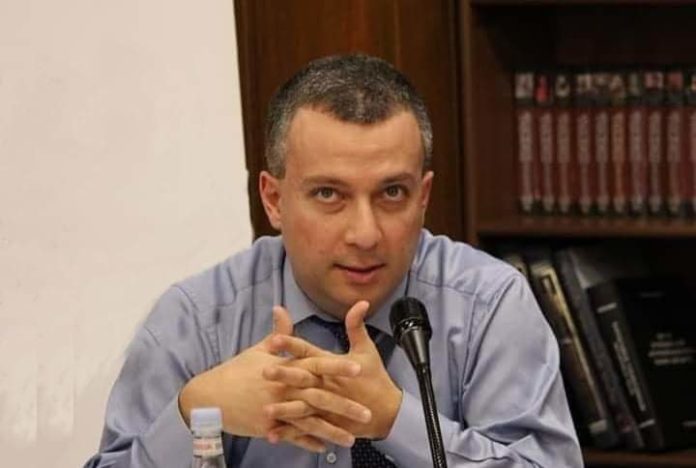Following the military takeover of Nagorno-Karabakh by Azerbaijan in September 2023 and the forced displacement of Armenians, Azerbaijan has pursued a double-pronged strategy in negotiations with Armenia.
Its first approach has been to undermine Western-led Brussels and Washington negotiation formats while showing an interest in resuming negotiations on the Moscow or regional platform. President Ilham Aliyev canceled participation in the Granada summit of the European Policy Community in October and the scheduled tripartite meeting in Brussels facilitated by the European Council president, Charles Michel. In November, Azerbaijan rejected the United States’ offer to resume negotiations with foreign ministers in Washington. Baku explained its decision by claiming that the European Union, France, and the US have a pro-Armenian or anti-Azerbaijani stance. Simultaneously, Azerbaijan has several times expressed its readiness to resume negotiations in Russia or on regional platforms. President Aliyev met many times with Russian officials before the presidential elections of February 2024, while receiving Western officials only after the elections.
The second approach has been to push bilateral negotiations with Armenia without any mediators or facilitators. After September 2023, Armenia emphasized its willingness to continue negotiations on Western platforms based on the principles agreed in Prague in October 2022 and Brussels in May and July 2023. Armenia also agreed to launch the bilateral track to ensure smooth negotiation. Armenia and Azerbaijan reached an initial result on December 7, 2023, when they signed a statement on releasing prisoners of war and Armenia’s support for Azerbaijan to host COP29, the next United Nations climate summit, in Baku.
Bilateral negotiations have continued in 2024. Several meetings took place between the Secretary of the Security Council of Armenia and the assistant to President Aliyev on foreign policy. In February 2024, Armenian and Azerbaijani leaders met in Munich, in the margins of the Munich Security Conference, in the presence of the German Chancellor, and ministers of foreign affairs met in Berlin later in February. However, these two meetings cannot be considered as a resumption of Western mediation formats, as neither the Europeans nor the Americans were the organizers – or indeed were involved – in these talks.
The bilateral negotiations track continued in May 2024, when Armenian and Azerbaijani foreign ministers met in Almaty, Kazakhstan, at the invitation of President Kassym-Jomart Tokayev. Border delimitation and demarcation commissions, established in May 2022, held several meetings in early 2024. These resulted in Armenian forces withdrawing from areas along the Armenia–Azerbaijan border in the Tavush region, framed by the Armenian government as a part of the delimitation and demarcation process based on the 1991 Almaty declaration.
What are Azerbaijan’s primary goals in the current phase of negotiations? First, Azerbaijan wants to solidify the post–September 2023 status quo and remove the issue of Nagorno–Karabakh and the future of Nagorno-Karabakh Armenians from the negotiation process. Second, by boycotting Western negotiation platforms, Azerbaijan seeks on the one hand to prevent the growing involvement of the West in the region and on the other, by portraying itself as an anti-Western actor, to improve relations with Russia. The Kremlin views the Western platforms as another channel for the West’s penetration of the region and, thus, a threat to its vital interests there. In this context, Azerbaijan’s efforts to undermine those platforms are aligned with Russian interests.








